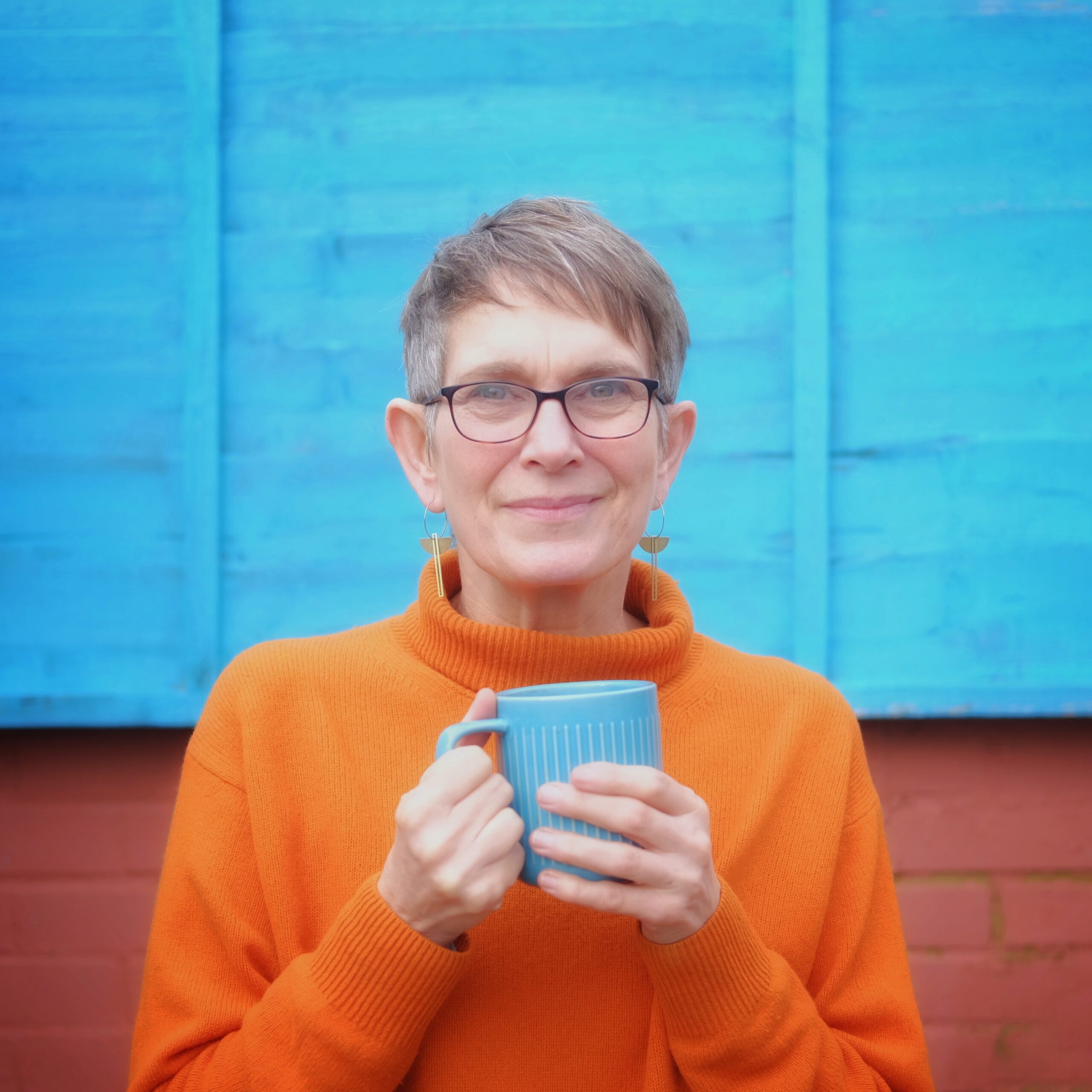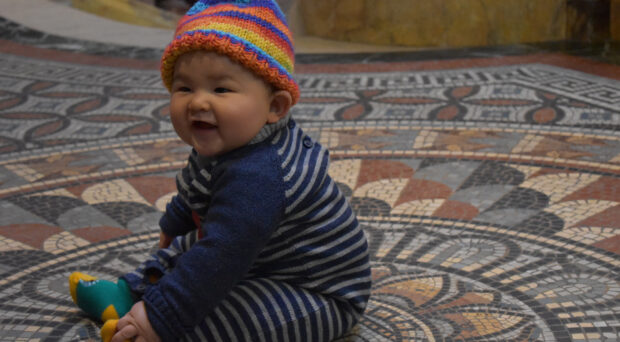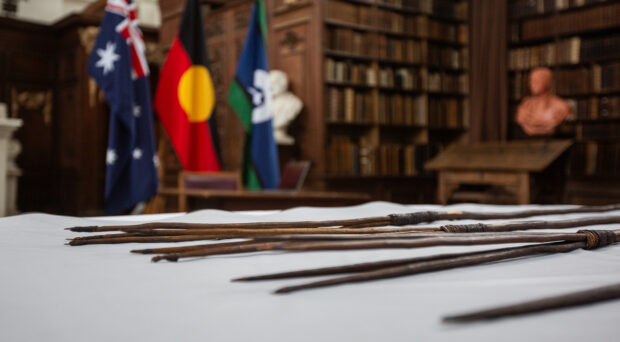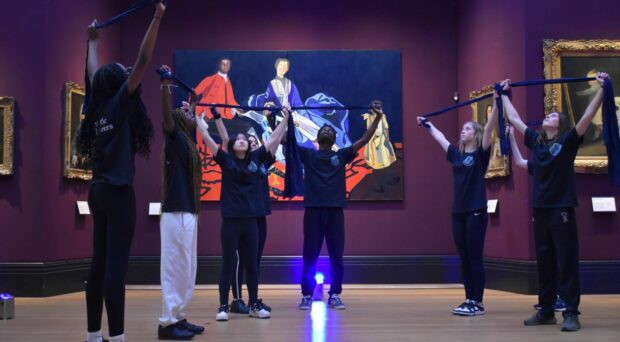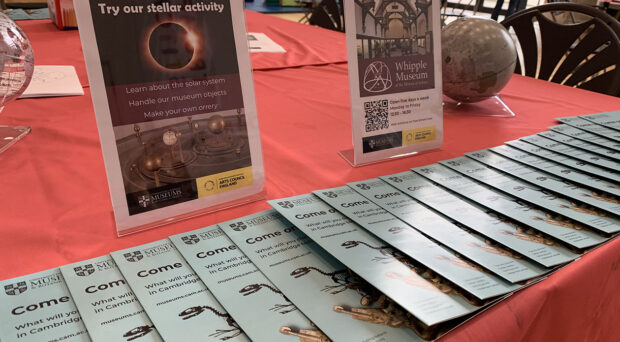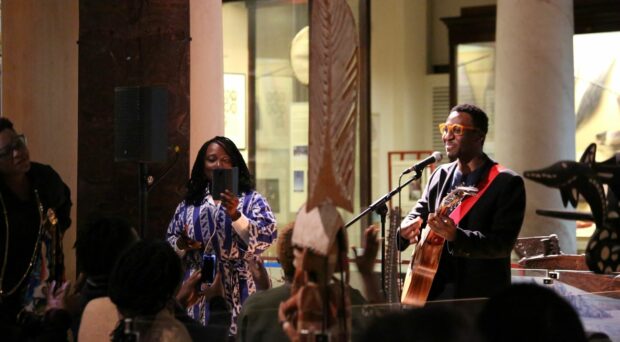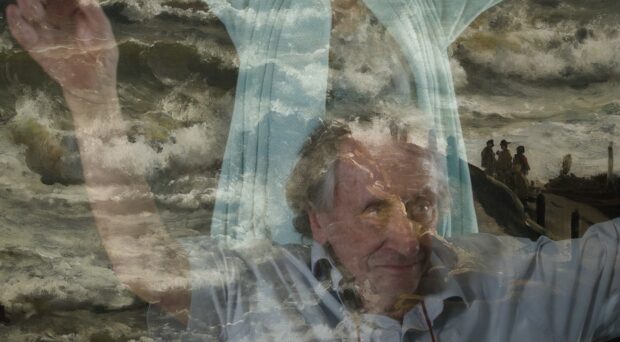Our programme for people with dementia and their companions celebrates its 12th anniversary in 2024. In this blog we reflect on the programme and ask people what motivates them to take part.
Established in 2012, Portals to the World is a partnership initiative delivered by the University of Cambridge Museums with local community organisation, Dementia Compass.
We provide two sessions per month across the University Museums and Botanic Garden. Each session combines a short, adapted talk with a guided museum walk, ending with refreshments and object handling. The sessions are designed to provide social, learning environments and allow for physical exercise.
A dedicated volunteer team, comprising of one volunteer for each person attending with dementia, means companions, most of whom have caring responsibilities, can experience respite during the session. The guided walks, facilitated by the volunteer team, are framed by specifically-designed tour leaflets highlighting particular objects. We send the walks by email beforehand to help people prepare and stimulate interest. Some of the Museum Walks are available to download on our website.
To ensure that Portals has a positive impact on museum access more widely, Dementia Compass also delivers termly training programmes for museum staff.

The popularity of Portals to the World
Since 2020, we have significantly altered the Portals delivery model in response to the impact of COVID-19 on our community, notably a backlog of people receiving a diagnosis, a rise in those experiencing loneliness or isolation and an increase in people affected by physical deconditioning.
Previously the offer had been to join one of two annual six or eight week courses and then a monthly alumni programme: each session consisting of a 30-minute talk, gallery exploration and an art activity or object handling session. What was needed now was greater capacity, a more inclusive offer (art activities were appealing to some, but not all) and opportunities to combine cognitive, physical and social stimulation.
In March 2024, 18 months on in the new delivery model, Portals to the World is still not able to meet demand, even though it has doubled its capacity. Keen to understand why this is and to help think about future planning, we invited participants to share and rank their motivations for taking part and the challenges they face in doing so.
Here is what people said…
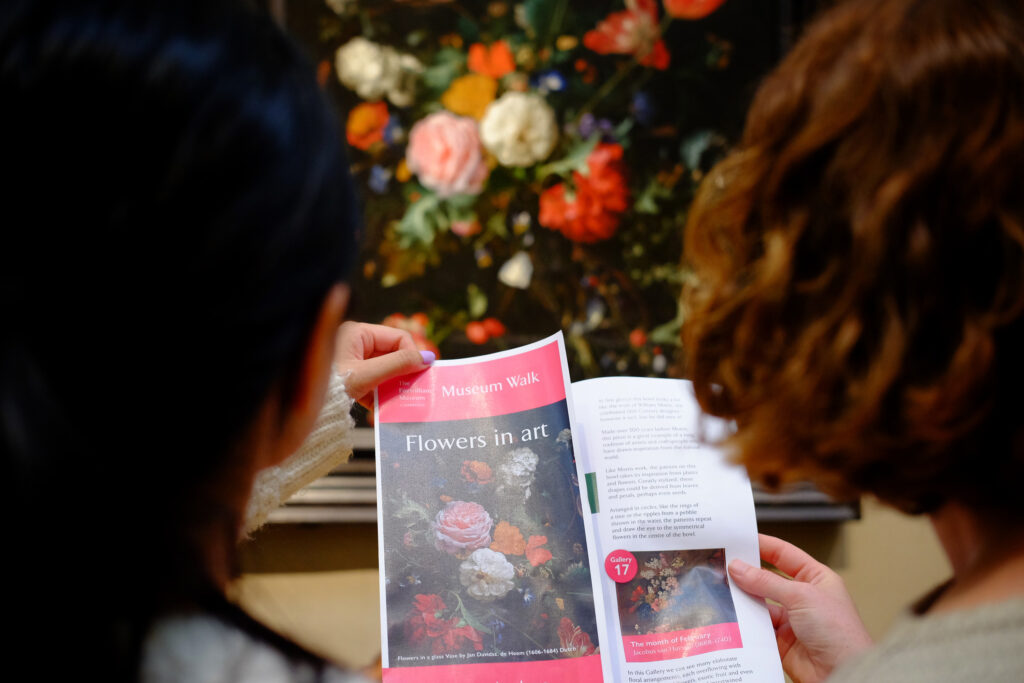
Top 10 Motivations for choosing Portals to the World
- Learning: a chance for both attendees to explore and find out.
“To take part in interesting and stimulating sessions tailored to engage both those with a disability and their carers.”
“[We] love having one specific item to learn about in detail during the session.” - Support: to be with others in similar situations.
“It puts my situation into perspective, and I realise I am not alone caring for someone with dementia.”
- Connection with the city’s cultural assets.
“An opportunity to get out of the house and to get to know some of the special collections which Cambridge has to offer.”
- Ease: well-planned, supported and accessible format.
“We have always enjoyed visiting museums… but now when it is just the two of us… it’s difficult… having a talk and a tour set out for us makes it easy.”
- Activity: a trip out, gentle exercise.
“The sessions offer a rare reason to get out of the house. This is important. In the colder months it can be hard to persuade my partner to go out. Even if we get a cab there, we usually walk back.” - Anticipation: something to look forward to together.
“My husband has cardiac problems and doesn’t find it easy to walk too far. Your sessions help to keep him stimulated and continue to do things that we did in the past.” - Care: support and time given by the Portals team.
“We like that participants are assigned a volunteer guide and we have felt very well supported on every occasion… It’s hugely helpful for me.” - Companionship: to enjoy time with others.
“To meet with others in a similar situation and share time together and experiences.” - Identity: sharing what we’ve enjoyed with family and friends.
“This is something to tell our children we have done – including new things we have learned.” - Choice: diversity of subject matter.
“Different topic areas across the museum network, curated by experts.”
Top Five Challenges faced in attending Portals to the World
- Access
“I need to be able to park easily nearby. Luckily, I have always been able to find a blue badge space.”
“Making sure there is a wheelchair available, needing help pushing the wheelchair.” - Conflicting appointments
“Clashes with other activities is sometimes a challenge so having two different dates for each session has helped with that.” - Challenge of planning
“There are always unpredictable things… that might mean we miss sessions.” - Weather
“Travel to and from the venue, the weather…” - Health
“The only factors that would stop us continuing to come along are ill health.”
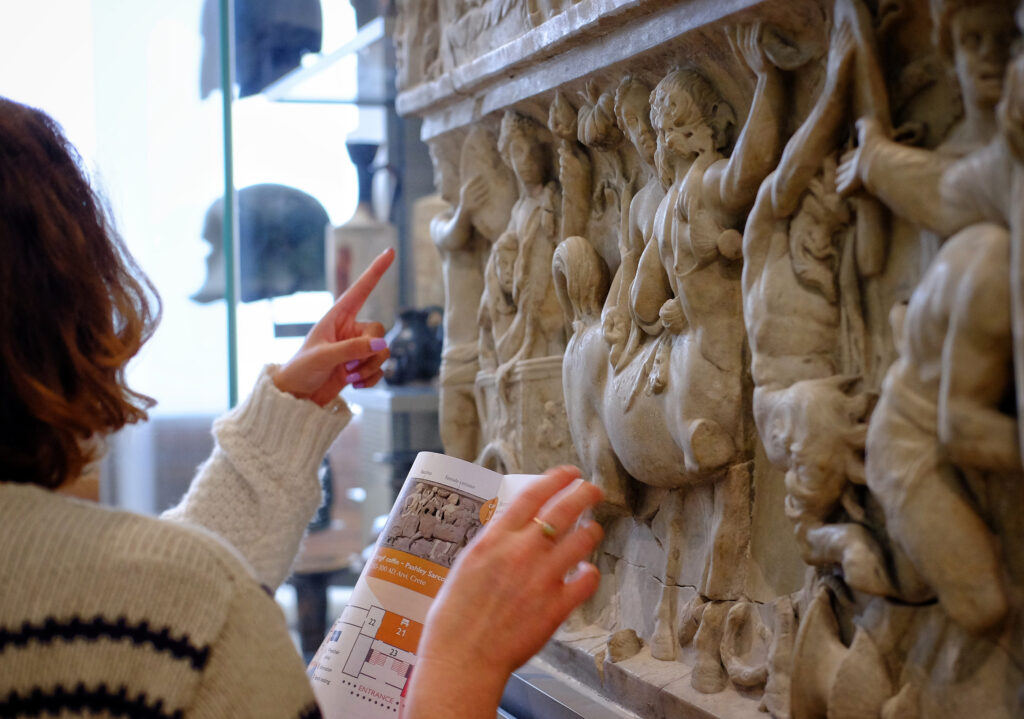
Moving forward
Clearly the in-person delivery of Portals is getting a lot right, which is evident in the volume of people attending and the heartwarming feedback we received: the high ranking of opportunities to learn and to be treated as a learner, the support received and given, the networks created, and the value of adaptations made.
We are planning to continue the programme delivery in the new model in the 2024-25 academic year, with a breadth of subjects and places across the University Collections to be explored.
Conversely, it’s no surprise that access and the unpredictability of life were identified as the headline challenges to taking part in Portals for some. The adapted guided walks are part of an answer to this, providing tools for independent visits focused on learning. We have made many of the museum walks available to download for free on our website.
How then might the museums also be able to provide support and make these much-valued adaptations outside of Portals sessions?
The current offer of a museum team training programme in dementia awareness and inclusive communication is well received and makes a positive contribution to museum inclusivity. The challenge with the programme, however, is the time commitment needed, meaning that it doesn’t reach all those in roles who would benefit.
To help bridge the gap between the training programme and people’s capacity, a new bitesize dementia awareness and communication training offer is planned for 2025. The bitesize will be targeted at all those in public facing roles and will focus on practical approaches to making adaptations, top tips and helpful tools for inclusion. The resource will be part of the established University of Cambridge Museums Warm Welcome training programme, which we designed to support all museum staff to reflect on and develop skills as museum hosts, guides and custodians.
Thank you to all our participants for taking part and sharing their feedback.

